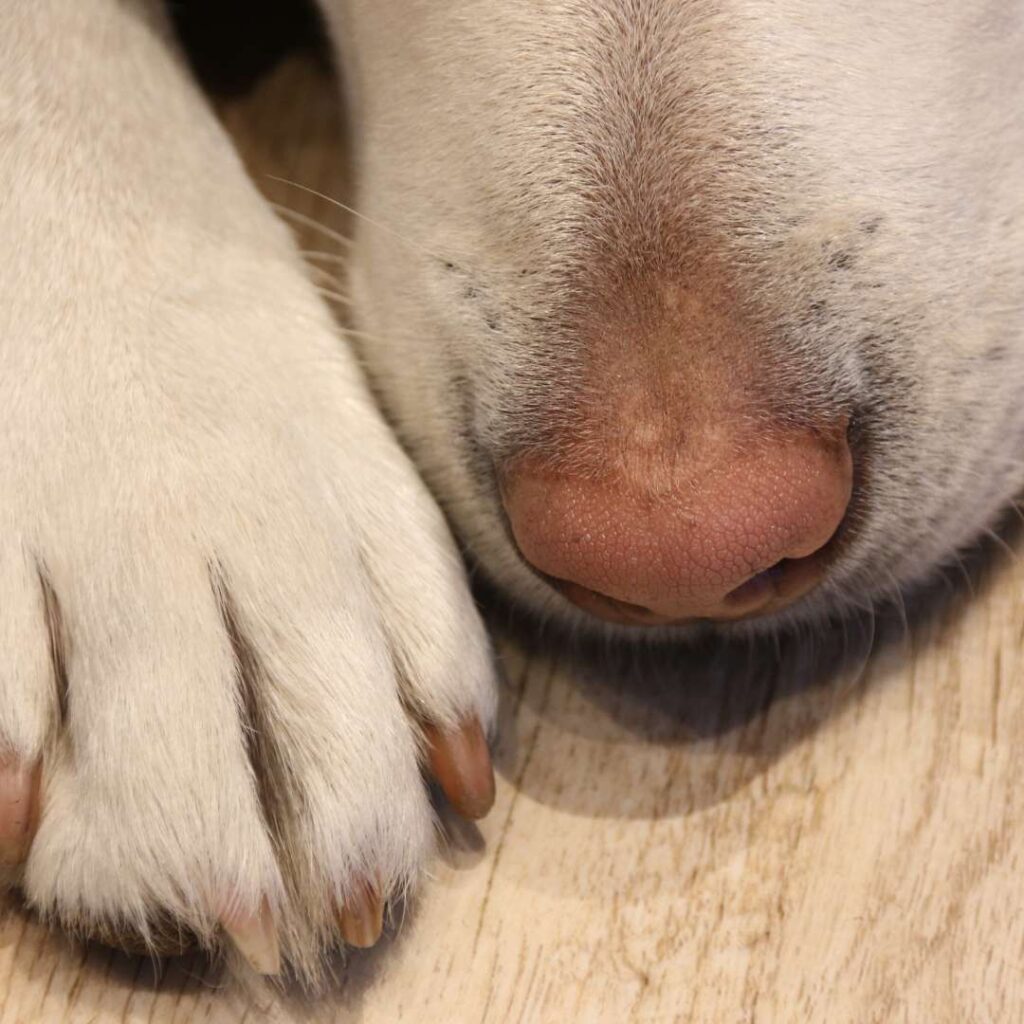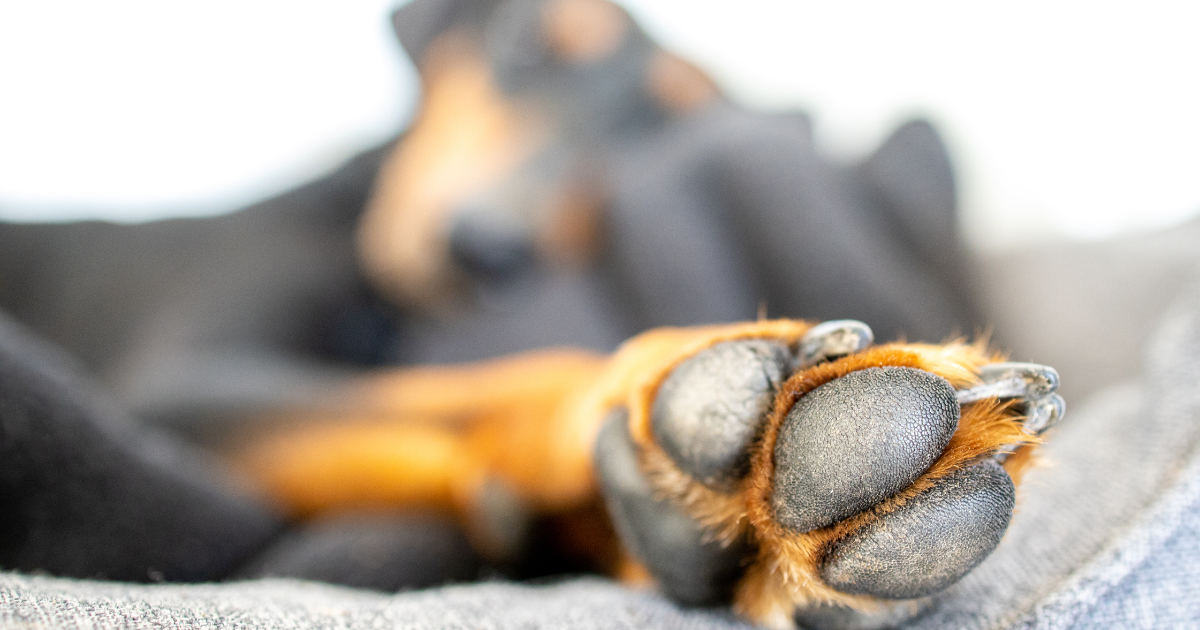Most dog owners have watched their pup indulging in a spot of paw licking from time to time. For others, paw licking is a more persistent pattern, and can even become a serious health problem. But why do dogs do this? Is it normal, or could it be a cause for concern? In this blog post, we’ll dive into the reasons behind your dog’s paw licking behaviour – when it’s normal, when it might indicate an underlying issue, and what you can do to help.
What is normal paw licking?
Believe it or not, some level of paw licking is perfectly normal for dogs. They use their mouths to explore and interact with the world around them, just like we use our hands. So it’s not uncommon for them to lick their paws out of curiosity or as part of their grooming and cleanliness routine. In fact, occasional paw licking can help keep their feet healthy and free from debris like grass seeds for example.
When to be worried about excessive licking
While some paw licking is normal, excessive licking can be a sign of an underlying problem. If you notice your dog licking their paws obsessively or any inflammation, redness, swelling, irritation or injury, it’s important to investigate the problem. Excessive licking can be related to issues like allergies, skin infections, foreign bodies, anxiety, stress or just plain boredom.

Reasons for dogs licking their paws
- Injuries or infections. Pain or discomfort from injuries, infections, or foreign objects like grass seeds or splinters stuck in the paw can also lead to excessive licking.
- Allergies. Just like us, dogs can suffer from allergies too. Seasonal allergies, food allergies, or contact allergies can all cause itching and discomfort, leading to excessive paw licking. Pollen allergies in dogs often present with itchy skin, especially itchy feet rather than sneezing like when we have hayfever.
- Anxiety and stress. Dogs may lick their paws as a coping mechanism when they’re feeling anxious or stressed. This behaviour can become a habit over time, even if the initial trigger is no longer present.
- Obsessive behaviour. Some dogs develop compulsive behaviours, including excessive paw licking, as a result of boredom, confinement, or lack of mental stimulation. When this happens over a prolonged period of time a toughened or thickened, often bald patch of skin can form called a lick granuloma.
How to help or prevent paw licking in dogs
- Consult your vet. If you notice your dog or puppy licking their paws excessively, a vet check is useful to rule out any underlying medical issues. Your vet can perform tests to determine if allergies, infections, or other health problems are causing the behaviour.
- Address underlying issues. Once medical issues have been ruled out or addressed, you can work on addressing the underlying cause of the paw licking behaviour. This may involve reducing stressors in your dog’s environment, providing mental and physical stimulation, or addressing any allergies through dietary changes or medication.
- Provide distractions. Keep your dog mentally and physically stimulated to prevent boredom and compulsive behaviours. Interactive toys, regular exercise, and training sessions can help keep your dog’s mind engaged and reduce the urge to lick their paws.
- Practise good paw care. Keep your dog’s paws clean and free of irritants by regularly wiping them with a damp cloth after walks or outdoor play. Check for any signs of injury, irritation, or foreign objects and address them promptly.
- Consider behavioural therapy. In severe cases of compulsive paw licking, behavioural therapy or medication may be necessary to help your dog break the habit and manage underlying anxiety or stress.
While some paw licking is normal behaviour for dogs, excessive licking can be a cause for concern. By understanding the reasons behind your their paw licking behaviour and taking steps to address any underlying issues, you can help keep your furry friend happy, healthy, and comfortable. If you have any concerns about your dog’s paw licking habits, don’t hesitate to reach out to your veterinarian for guidance and support.


Hi, do you do food without cichory please as my dog can’t have it? Also we have chosen chicken flavour, can you do it without chicken liver please?
Also dies your fish flavour have sardine in it?
Please help, I can’t find my dogs a suitable food.
Thank you Claire
Hi Claire, our Customer team would be happy to take a closer look into your dog’s ingredients with you. Just send us a direct message with your details via Facebook Messenger and we can help 💙
My dog currently has food from tails dry and wet but because he is an older dog I wondered if you have a senior kibble ie a softer mix as he will only eat with the meat mixed in it thankyou
Hi Kellie-anne, our Customer team would be happy to help with this. Just send us an email at hello@tails.com.